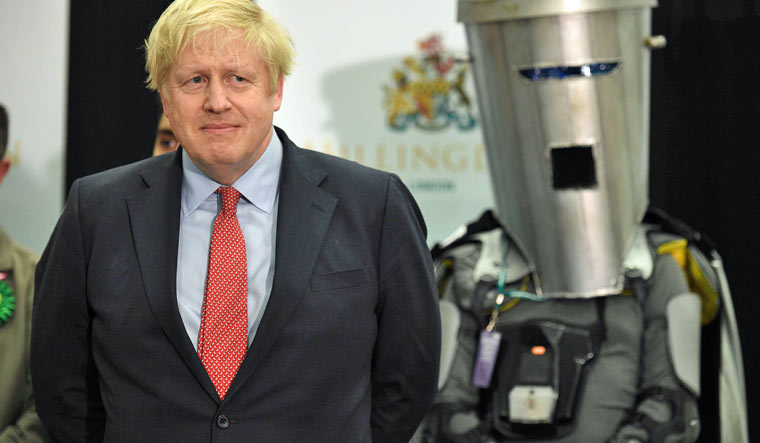The UK government, on Monday, said Prime Minister Boris Johnson is “doing well” after staying overnight in the hospital for some “routine tests” related to his COVID-19 diagnosis.
UK housing and communities secretary Robert Jenrick said Johnson remains in charge of the UK’s response to the coronavirus pandemic and is expected to be back at No.10 Downing Street.
UK foreign secretary Dominic Raab, the First Secretary of State, is the UK PM’s chosen second-in-command and stepped in to chair the daily coronavirus response meeting, dubbed the COVID-19 war cabinet, on Monday morning.
Johnson has, until last Friday, continued to chair the daily meetings remotely via video conference from his self-isolation in his private quarters in Downing Street since his diagnosis 10 days ago. The British prime minister was last seen, still looking quite poorly, when he made a brief appearance at Downing Street on Thursday night to join the national “clap for carers” applause in appreciation of the hard work of National Health Service workers on the frontline of the fight against the outbreak.
US President Donald Trump began a White House press briefing by sending “our nation’s well wishes” for Mr Johnson’s “own personal fight with the virus».
“All Americans are praying for him. He’s a great friend of mine, a great gentleman and a great leader,” Trump said.
Besides PM Johnson, another cabinet minister, Health Secretary Matt Hancock tested positive for the virus on March 28.
And even as Johnson’s office says he was admitted—on March 27 as a precautionary step, a question looms over many Briton’s minds: What happens if his health does deteriorate?
There are no guidelines in the Cabinet Manual for steps to be taken in such a situation.
Catherine Haddon, a senior fellow at the Institute for Government was quoted in a Reuters report as saying, “We’ve not been in that kind of situation, we’ve not had to think from that point of view before.”
When former prime minister Winston Churchill suffered from a stroke in 1953 while in office, it was kept a secret for a long time. Even some of the senior ministers weren’t aware. Luckily, he recovered quickly, and in two months, returned to run the Cabinet in London. At the time, Churchill’s most loyal aide, Sir Jack Colville hastily put a plan together and it was decided that Lord Salisbury, another close ally of Churchill’s, would take over if he did not pull through.


